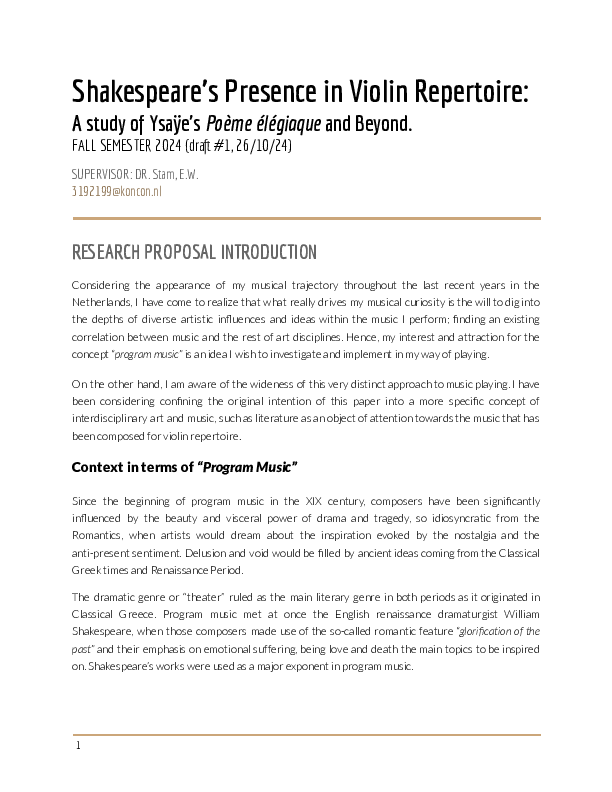As well as it sounds “élégiaque” or “elegy” is a borrowing from middle French, etymologically coming from ancient greek, meaning “poem of lamentation for the death in mournful style”. Elegy based on the death of the well-known tragedy drama Romeo and Juliet by W. Shakespeare. Taking Ysaÿe’s piece title as a description I want to investigate how his concept of program music works here.
In a theoretical research context, I want to investigate the relation Ysaÿe felt with Shakespeare; what did Romeo and Juliet mean to Ysaÿe? Under what circumstances did Ysaÿe composed such a piece? What did the terms such as tragedy, love and death evoked in him? And ultimately, what is the straight and technical compositional relation between the music written as program music and the literature written in the play Romeo and Juliet? Did Ysaÿe keep those ideas, concepts and influences throughout his life as a composer? We are talking, after all, about a piece that took him over ten years of his life to complete, starting at the adult age of 36.
It is, in other words, the curiosity that arises within myself that makes me want to discover the depths of Ysaÿe’s musical language that is so very unique from the rest of his contemporaries and how he inspired himself to create this monumental musical poem. By studying, analyzing, practicing, performing, showing, disseminating and disclosing his “Poeme élégiaque” op.12 as the working process of this paper and core piece of my research, I think I would be able to understand and explore what the program music offered to the violin literature during Ysaÿe’s times.
From the empirical practice point of view, a fair description of what I now want to do is exploring the possibilities of interaction between the musician and the audience through program music. What can I do as a musician to acquire an engaged audience during my performance?
This research project will become one important endeavor in my musical development where I believe I will learn more about how to offer this particular performance event, learning how to formulate a musical-literary bridge between the music that is being heard and the story behind it.
Sequentially, I aim to design a dynamic feedback loop between the performer and the listener where I establish a symbiotic reciprocal relationship, fostering a shared and an interactive spoken momentum and an exclusively musical experience in a performance setting.
Here is the project research proposal where I set up the planning on how I will follow the steps. The recording for the core piece can be heard here
